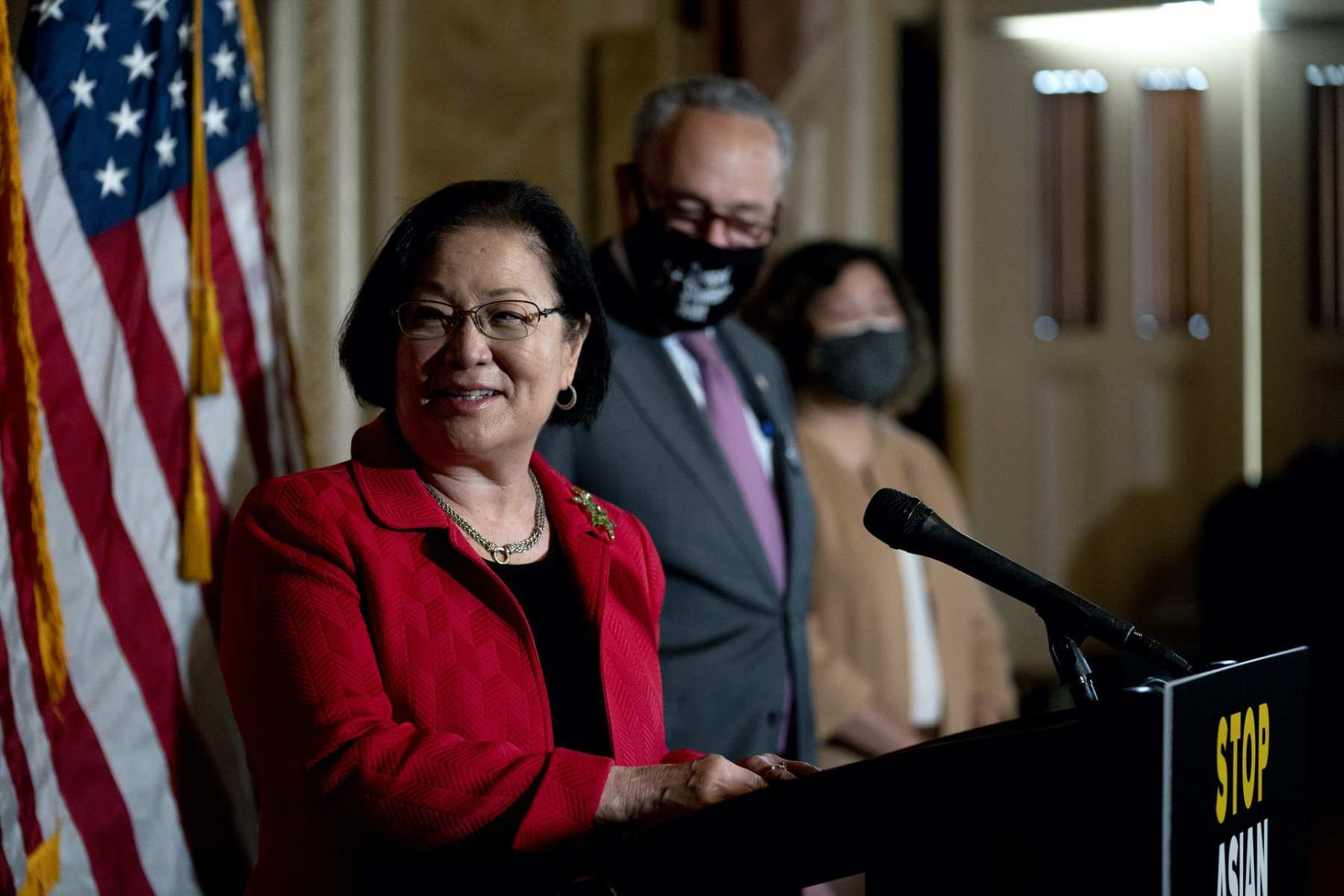Senate Democrats are moving quickly to vote on a bill designed to address hate crimes against Asian American Pacific Islander (AAPI) individuals related to the COVID-19 pandemic, though its chances of passing the evenly divided chamber are not clear.
The COVID-19 Hate Crimes Act, introduced by Sen. Mazie Hirono of Hawaii and Rep. Grace Meng of New York, both Democrats, would designate a point person at the Department of Justice to review hate crimes related to the COVID-19 pandemic; and provide additional support for the state and local law enforcement agencies responding to hate crimes in real time.
“It’s time for Congress to take a stand,” Hirono said at a Tuesday news conference.
As of Tuesday morning, no Republican senators had signed onto the legislation, but Senate Majority Leader Chuck Schumer said that Democrats were “open to strengthening the bill” with amendments before voting later this week because “there is no reason why this shouldn’t be a bipartisan bill that passes the Senate without delay.”
The 100-seat Senate is evenly split between Republicans and Democrats, and most legislation, including the hate crimes bill, effectively requires support from 60 senators for passage. Schumer noted that at least one bipartisan amendment has been proposed, suggesting that it could be possible for the measure to pick up some Republican support. Democrats control the House of Representatives, where a simple majority is needed to pass legislation.
The planned Senate vote on the bill will come roughly one month after eight people were killed at Atlanta-area spas by a White gunman. All but one of the victims were women and six were of Asian descent. There has been public pressure to classify the attack as a hate crime, in a test of new hate crime legislation in Georgia that was enacted last year.
During the first year of the coronavirus pandemic, nearly 3,800 “hate incidents” targeting AAPI individuals — including verbal harassment, general avoidance, physical assault, civil rights violations and online harassment — were reported to Stop AAPI Hate, a coalition of community organizations. But most experts agree that hate crimes are vastly undercounted.
Democratic Rep. Andy Kim of New Jersey said Tuesday that when he met with members of the AAPI community over the last month, “One question kept coming up: What are you going to do about this?”
Hirono noted that the bill’s reporting recommendations for states are voluntary. It would “designate a person to do an expedited review” within the Justice Department and enable the agency to work in concert with state and local law enforcement. She has repeatedly described the measure as uncontroversial.
Hirono added that the national uptick in hate incidents against AAPI individuals has affected her own life: “Before, if I was walking around outside, I’d have my earbuds on, listening to books on tape, I would never do that now.”
President Joe Biden has urged swift passage of the legislation and late last month announced steps his administration would take on its own to address AAPI hate incidents, including establishing a COVID-19 equity task force.
Kim said on Tuesday that “this has been one of the most difficult months of my life.”
“I really do believe that the next few weeks will determine the next few decades of how Asian Americans are treated and understood and accepted in this country,” he added.






